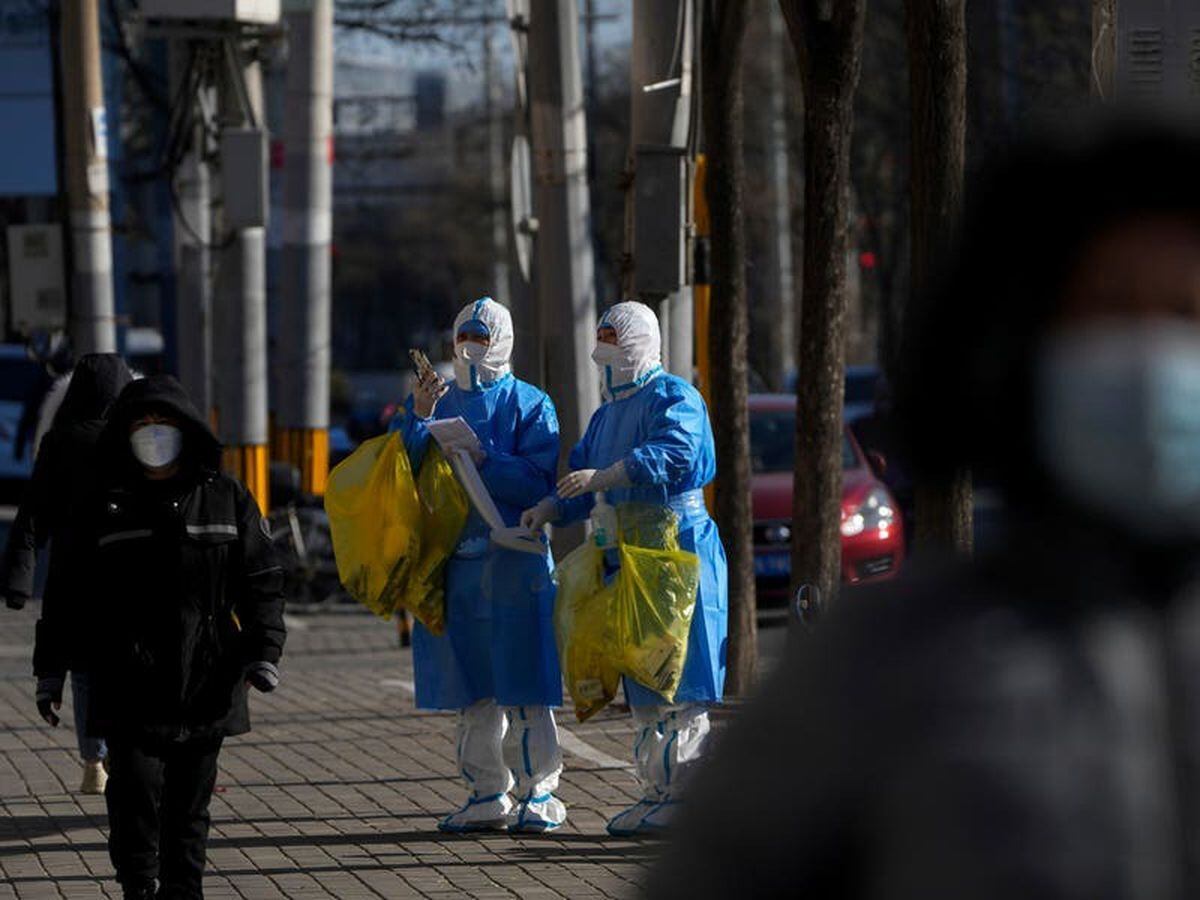[ad_1]

More Chinese cities eased some anti-coronavirus restrictions on Thursday as police patrolled streets to stem protests.
Meanwhile, the ruling Communist Party is preparing for the funeral of its late leader, Jiang Zemin.
Guangzhou in the south, Shijiazhuang in the north, Chengdu in the southwest and other major cities announced relaxed testing requirements and movement restrictions. In some areas, markets and bus services have reopened.
The announcements made no mention of last weekend’s protests in Shanghai, Beijing and at least six other cities over the human cost of anti-virus restrictions that have confined millions of people to their homes.
But the timing and publicity suggest that President Xi Jinping’s government is trying to calm public anger after some protesters made politically explosive demands for his resignation.
Due to the heavy police presence, there were no signs of protest.

“I am particularly afraid of becoming a ‘Xinjiang model’ and being searched for walking around,” said a post on Sina Weibo, signed by Qi Xiaojin, referring to the northwestern region where Uighurs and other Muslim minorities live. under close surveillance.
Protesters have used Twitter and other foreign social media to publicize their protests, while the Communist Party has removed videos and photos from services inside China.
On Thursday, the government reported 36,061 new coronavirus cases in the past 24 hours, 31,911 of whom were asymptomatic.

He died in Shanghai on Wednesday of leukemia and multiple organ failure, the party announced.
The party announced that, in accordance with Chinese tradition, foreign dignitaries would not be invited. It has yet to set a date for the funeral or announce how it might be affected by anti-virus controls.
Xi Jinping’s government has pledged to reduce disruption to its “zero Covid” strategy by shortening quarantine periods and making other changes.
But it said it would stick to its repeated closures of schools and businesses and the suspension of restrictions on entering the community.
Protests began on Friday after a fire at an apartment building in Urumqi, Xinjiang, killed at least 10 people. That raised questions about whether firefighters or victims trying to escape were blocked by locked doors or other controls. Authorities denied this, but the death became a focus of public discontent.
The government says it is making restrictions more targeted and flexible, but a surge in infections since October has prompted local officials to implement controls that some residents say are excessive and disruptive, and they will face serious challenges if the outbreak breaks out. Threat of job loss.
[ad_2]
Source link